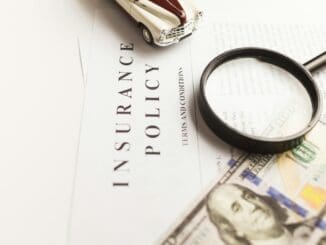
As unsettled as the financial markets have been during the past five years, investors have difficulty deciding where to put their savings. And other aspects of personal finance — insurance issues, retirement planning, estate planning, and taxes — have also become more complex.
Navigating the financial landscape can be a daunting task without the proper guidance. A financial advisor can be your compass, providing the expertise and insight you need to make informed decisions.
The growing need for such advice also indicates a thriving sector of the job market — rather than paying someone else for financial advice, you might consider how to become a financial advisor yourself. You will have greater insight into your financial affairs, and by working professionally in the field, you can establish a lucrative career. The very low end of annual earnings for financial advisors is around $30,000, but successful private practitioners can earn salaries in the six figures. The good thing is it doesn’t take an expensive advanced degree to get started.
Financial planning is still relatively new, and advisors from various backgrounds and with diverse abilities are hanging out their shingles. If you already work for a brokerage, investment house, or bank, your employer may have an in-house training program for advisors. Interning with an existing financial planner is another way to get started.
As the profession becomes consolidated, however, more and more potential customers will expect their advisor to have a CFP license — the Certified Financial Planner license — issued in the United States by the CFP Board of Standards, an independent, nonprofit regulatory agency. In the United States, the CFP license has become the most recognized standard of professionalism in the field.
To earn the license, you must sit for a two-day, ten-hour exam on investing, insurance, estate planning, retirement planning, and tax planning. The test is rigorous; you can’t go in “cold.” If you’re already working in the field, you may have sufficient knowledge to tackle the exam; otherwise, you should take a program of study geared toward the CFP exam offered by a qualified institution. The American College in Bryn Mawr, Pennsylvania, is particularly noted for its course programs in preparation for the CFP exam and other related exams. You can complete all the coursework online.
A CFP license also requires a bachelor’s degree (in any subject), and three years of full-time relevant personal financial planning experience. The board will also consider two years of apprenticeship experience that meets additional requirements. If you’re uncertain about this requirement, contact the CFP board directly and ask for their advice.
The CFP board takes ethics seriously. You will be asked to disclose whether you have been a party to any proceeding or inquiry involving criminal behavior, mainly white-collar crime. If you’ve filed for personal bankruptcy, that, too, will count against your application. The CFP Board maintains a Code of Ethics and Professional Responsibility, Rules of Conduct, and Financial Planning Practice Standards, which you must thoroughly learn and abide by.
If you’re starting from scratch, first complete the coursework — if you’re diligent, you can finish the entire program (seven courses) at the American College in a year or less. In the meantime, look for work in the field as an apprentice or intern or in a closely related area at a bank, investment house, or brokerage. Once you’ve gathered the necessary experience, take the exam. And once you have your CFP license, your job prospects will multiply!




Be the first to comment